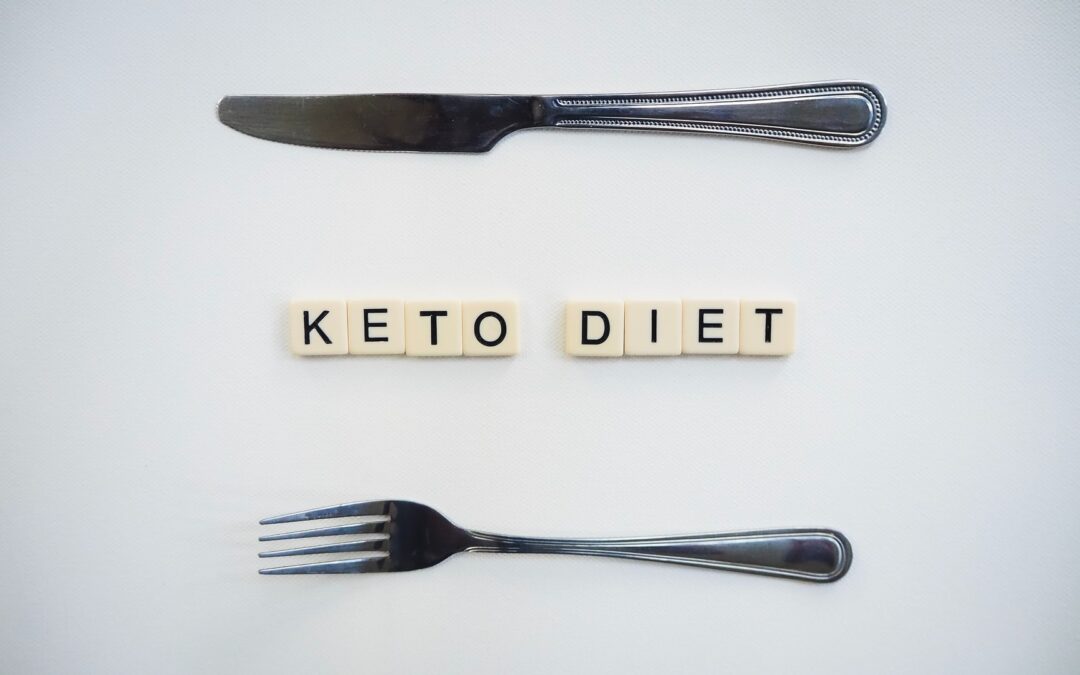Last year it was Paleo. Then the documentary “What the Health” came out and everyone decided to give Veganism a try. Most recently, the biggest weight loss fad to hit the internet and social media hubs is the Ketogenic Diet, or “Keto Diet.” What is it and should you consider giving it a try? Is it just a fad and is it healthy? Here is some key information to consider when deciding if this diet and lifestyle is right for you.
What is the Keto Diet?
A ketogenic diet is one that is high in fat, low in carbohydrate and moderate in protein. This way of eating forces the body into ketosis, which causes it to burn ketones from fat for fuel instead of burning glucose from carbohydrates. A licensed professional such as a Registered Dietitian should medically supervise this transition. This diet has been used for years to treat Epilepsy, however research is now showing that it has other therapeutic benefits as well. This diet may not be appropriate for everyone.
The benefits of the keto diet include but aren’t limited to:
* Improved hunger and appetite control
* Weight loss and/or weight maintenance
* Improved mental clarity, cognitive function, memory, and potential reduction of symptoms from neurological conditions
* Stabilized blood sugars and restored insulin sensitivity
* Lowered inflammation
Is the Keto Diet Healthy?
It is a common misconception that consuming a diet high in fat can lead to cardiovascular disease due to high intakes of saturated fat and cholesterol. Recent studies have shown that reducing carbohydrate intake to the point of inducing ketosis leads to significant benefits in blood lipid profiles, particularly in triglyceride levels1.
A very low carbohydrate, ketogenic diet is shown to have positive effects on total cholesterol reduction and an increase in high-density lipoproteins (HDL)1. It also increases the size and volume of low-density lipoprotein (LDL) particles1-2, which is considered to reduce the risk of cardiovascular disease because small LDL particles have a higher atherogenicity (1). Large LDL modules are associated with normal triglyceride and cholesterol levels where as small, dense LDL particles are associated with elevated triglycerides and low HDL levels, which increases the risk of cardiovascular disease (3). Over consumption of carbohydrates leads to an increase in small, dense LDL particles and triglycerides (3).
Therefore, consuming a ketogenic diet can reduce the risk of cardiovascular disease by increasing HDL levels, and decreasing small, dense LDL levels. It also reduces inflammation and insulin resistance, which decreases the risk of chronic diseases such as Type 2 Diabetes (which is one of the biggest risk factors for cardiovascular disease).
Ketosis. Say What?
Ketosis is when the body burns ketones from fat instead of glucose from carbohydrates. There are 2 metabolic pathways in the body for burning energy. Most people utilize a glucose-burning pathway, however, those in ketosis utilize a ketone-burning pathway. We get the glucose we burn from carbohydrates. When carbohydrates are ingested, the body burns the glucose it needs and stores the extra glucose in the form of glycogen. When the glycogen stores are full and excess glucose is consumed, the glucose is then converted to fat. When carbohydrates are limited or cut from the diet, the body first breaks down the glycogen stores into glucose to use as energy. Once the glycogen stores are exhausted, the body has to find a new source of energy. In this fasting state, the liver begins to breakdown fat, producing ketones. The body then can utilize the ketones to burn as an energy source; ketones are the preferred fuel source for the muscles, heart, brain, and liver. When you are ketone adapted, you burn your own body fat as well as dietary fat, which leads to weight loss.
Who is it for?
-Patients who would like to lose weight and are highly motivated to make lifestyle and dietary changes.
-Patients with chronic diseases such as Obesity, Pre-Diabetes, Diabetes, Parkinson’s, Alzheimer’s, Anxiety, Depression, PCOS, GERD, Epilepsy, Hypertension
-Patients who are willing to commit to this lifestyle for a minimum of 3 months.
Key Takeaways
A ketogenic diet is typically 75-80% of calories from fat, 15-20% of calories from protein, and only 5% of calories from carbohydrates, mainly from non-starchy vegetable sources.
A ketogenic diet may accelerate weight loss, but it can be hard to sustain this way of eating due to its very restrictive nature.
Looking find out more or give it a try?
Our team of skilled Registered Dietitians can help you decide if this approach is right for your lifestyle as well as cater the meal plan to your needs.
References
1. Paoli A, Rubini A, Volek JS, Grimaldi KA. Beyond weight loss: a review of the therapeutic uses of very-low-carbohydrate (ketogenic) diets. European Journal of Clinical Nutrition . 2013;67:789-796.
2. Sharman MJ, Kraemer WJ, Love DM, et al. A Ketogenic Diet Favorably Affects Serum Biomarkers for Cardiovascular Disease in Normal-Weight Men. Human Nutrition and Metabolism . April 2002.
3. Vogel L. The Keto Diet . Las Vegas , Nevada: Victory Belt Publishing Inc; 2017.
4. Moore J, Westman EC. Keto Clarity: Your Definitive Guide to the Benefits of a Low-Carb, High-Fat Diet. Victory Belt Publishing ; 2014
5. Watson J. Ketogenic Diet: Which Patients Benefit? MedScape.

